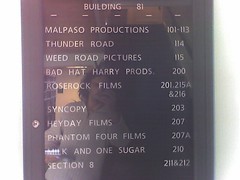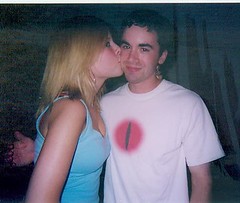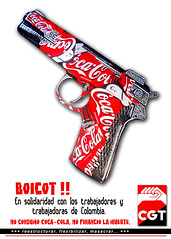(From hardcore saint Jonathan Meza and the Jan 6th edition of the Financial Times)
“It is 16 years since Avelino Chicanoy was murdered in Pasto, Colombia, the first of eight union leaders killed at Coca-Cola bottling plants in the country, allegedly at the hands of right-wing paramilitaries.
At the time, the killings attracted little attention, coming as they did amid the daily cycle of political violence in Colombia.
But over recent years, the deaths have become an international cause celebre for labour rights groups and student activists, who accuse Coke of turning a blind eye to the murders.
Anti-Coke campaigns have spread across more than 100 university campuses throughout the US, Canada and Europe, including the UK, where activists are pushing for a nationwide student boycott.
This week, the University of Michigan became the 10th US college to ban Coke products from its premises, following similar decisions by New York University and Rutgers University.
In addition to alleged labour abuses in Colombia, activists accuse Coke of damaging the environment in India by exploiting and polluting scarce water resources around its bottling plants.
“Coke has become a whipping boy for globalisation, just as Nike and McDonald’s have been for years,” says Tom Pirko, president of BevMark, a beverage industry consultancy.
The company vehemently denies wrongdoing in either Colombia or India and has set up a task force to make its case to student and university leaders. But the public relations offensive has so far failed to slow the campaign’s momentum.
Loss of sales from a handful of universities will have little immediate impact on a company with annual revenues of about $22bn. But Coke says it is “very concerned” about the damage to its reputation among young consumers.
The company sought to answer critics last year by recruiting an outside auditor to inspect its operations in Colombia. But activists said the resulting report, which found no evidence of ongoing abuse, lacked independence and failed to investigate the eight murders.
Coke has resisted an independent investigation, arguing it could prejudice an ongoing lawsuit against its Colombian bottling partner in a Miami court.
Mr Pirko says Coke is particularly vulnerable to attack over its ethical standards because its success has been built on positive perceptions surrounding its famous brand.
“One of the things at the heart of the Coke brand is that it embodies goodness, fun and play,” he says. “If consumers start to associate the brand with more negative messages, that is a very big problem for Coke.
It is impossible to over-estimate the damage caused when a brand goes from being seen as something good to something bad.”
Coke’s brand remains the most valuable in the world, ahead of Microsoft, valued at $67.5bn, according to an annual survey by Interbrand, a brand consultancy. But its value has been edging down in recent years, following a series of blows to its reputation.
In Europe, the company’s image was dented by a contamination scare at a bottling plant in Belgium and the botched UK launch of Dasani bottled water, which was revealed to be recycled tap water containing excessive levels of a dangerous chemical.
But perhaps the biggest threat to Coke’s image is growing consumer concern about the role sugary fizzy drinks play in the obesity epidemic sweeping the developed world.
US soft drink producers recently agreed to voluntary restrictions on sales in schools in response to mounting pressure on the industry from state governments, parents and health activists. Some analysts say Coke and its rivals could eventually face tobacco-style class action lawsuits from victims of obesity.
Coke hopes that a new global advertising campaign planned for this year – using the slogan “Welcome to the Coke Side of Life” – will help generate more positive feelings towards the brand.”






















